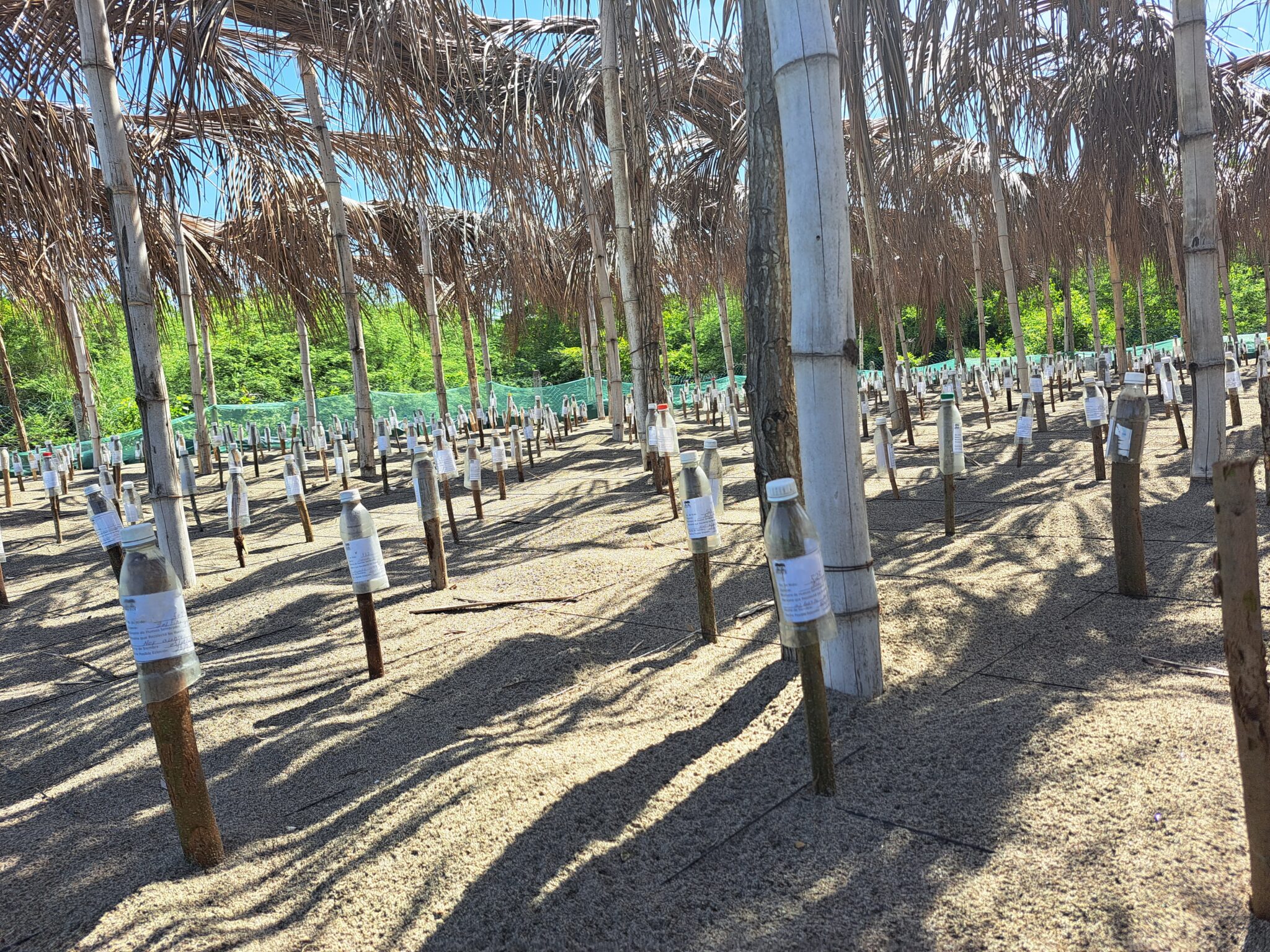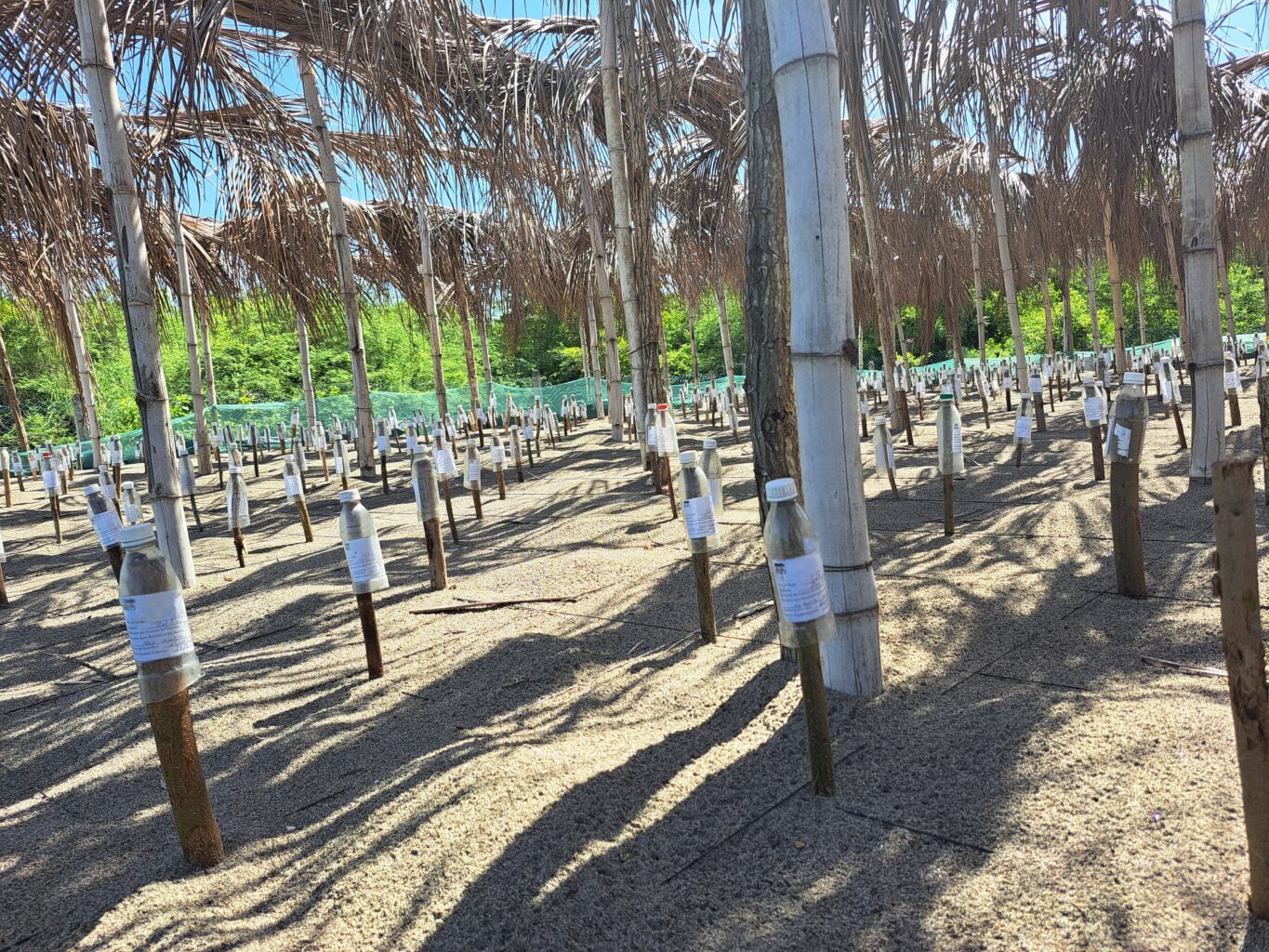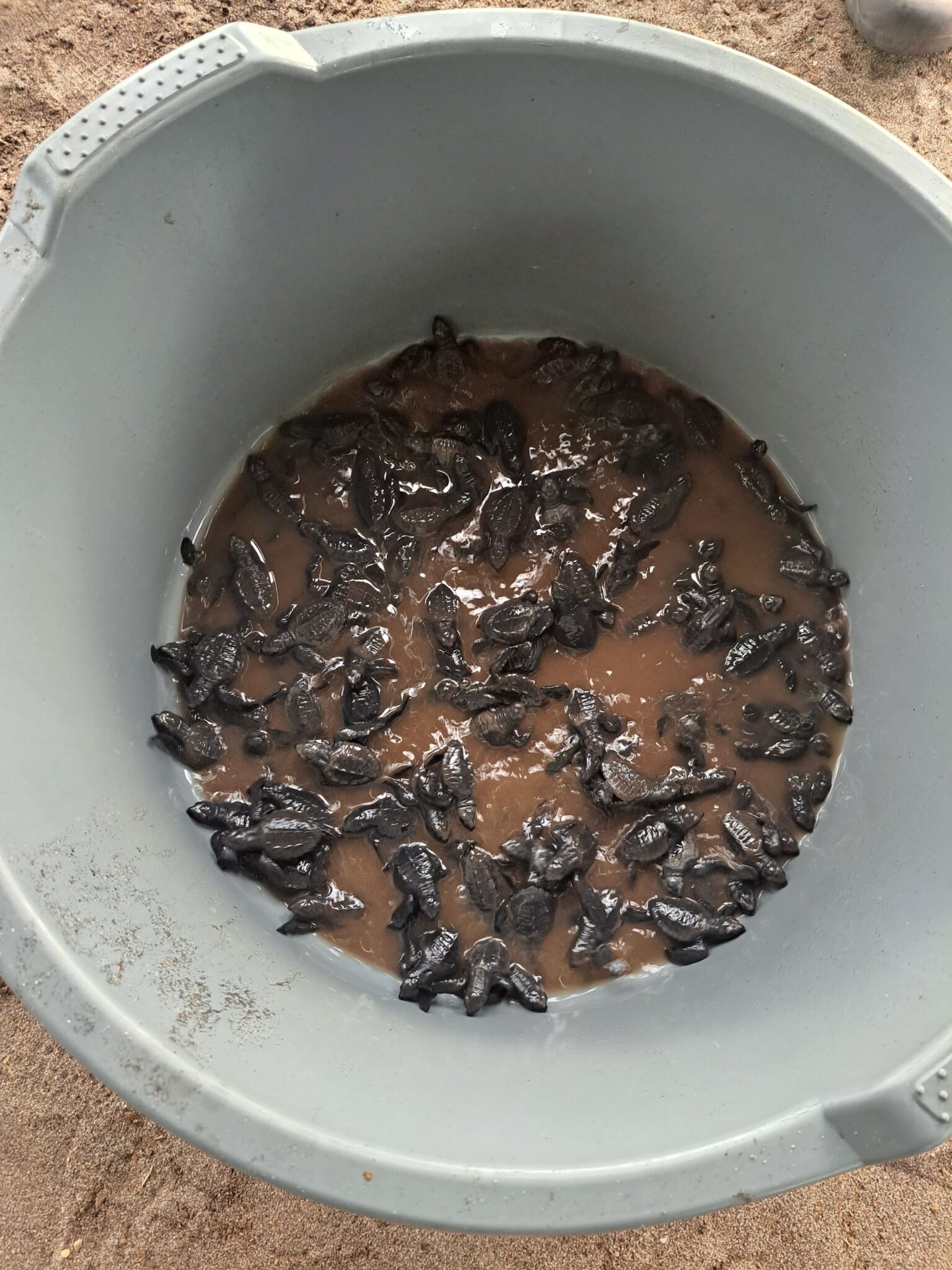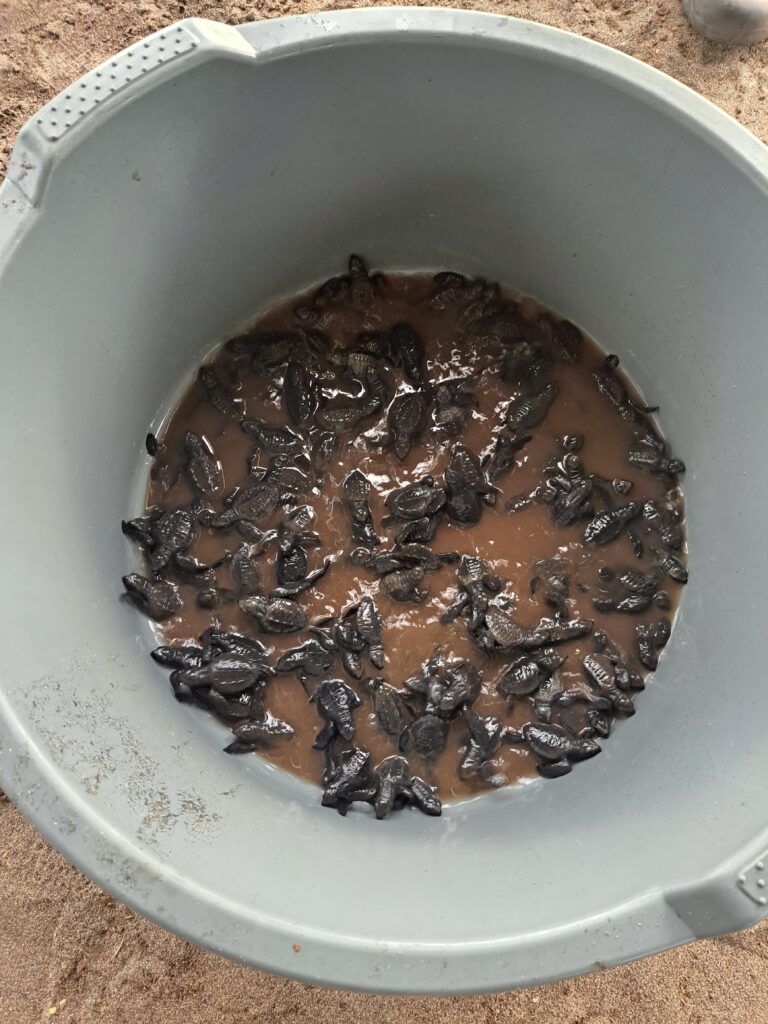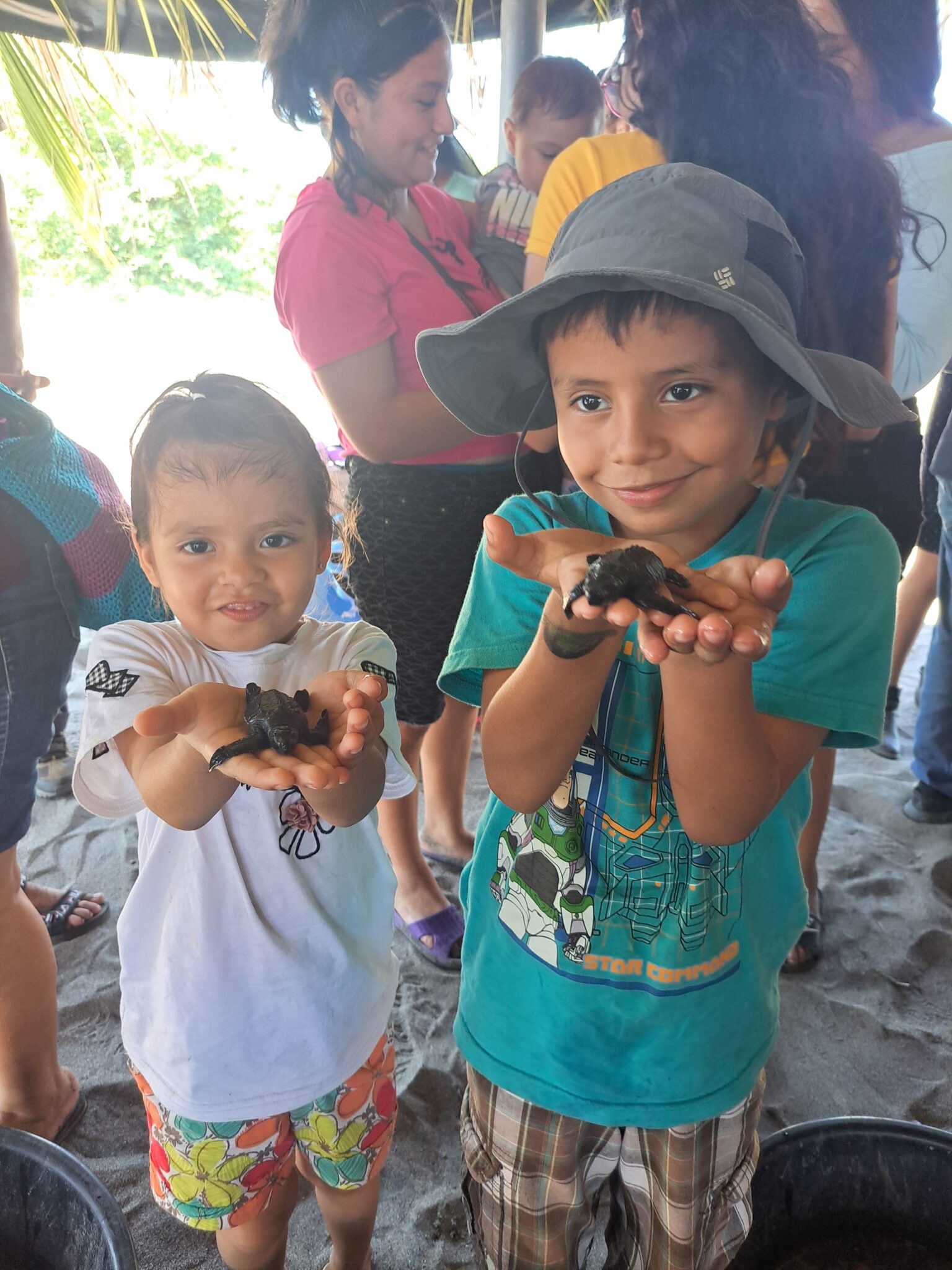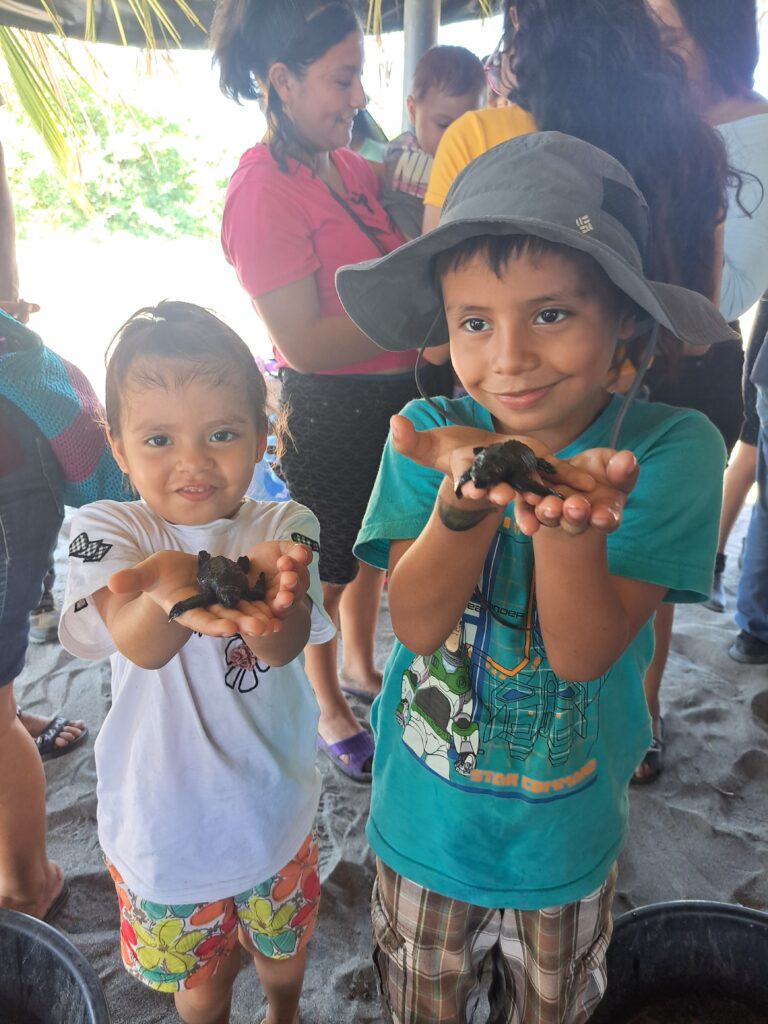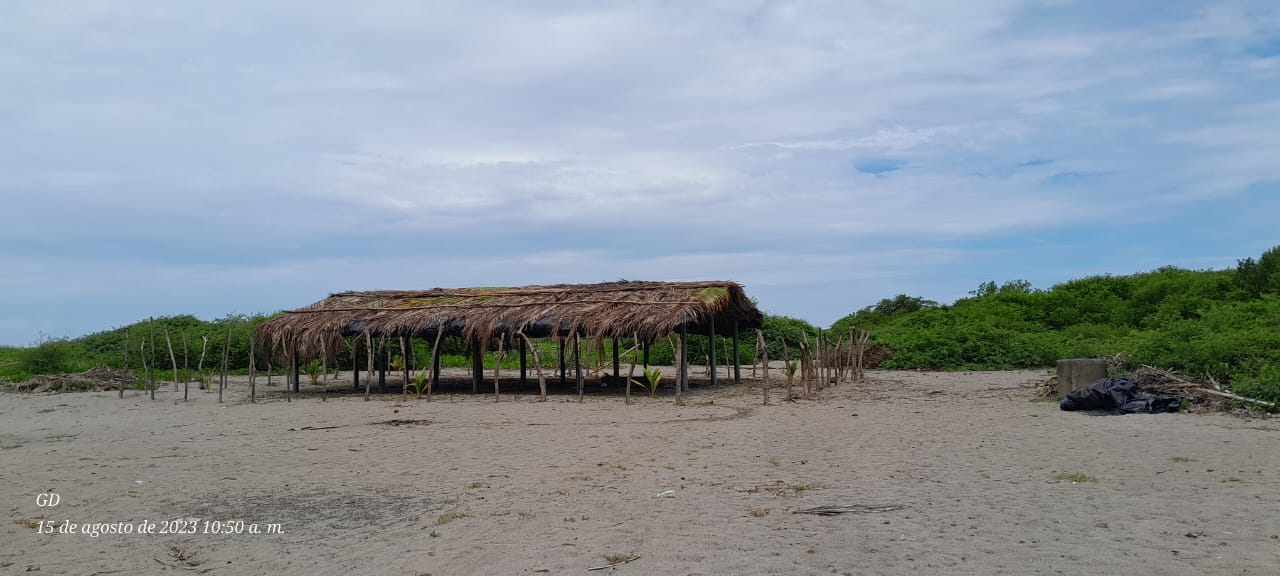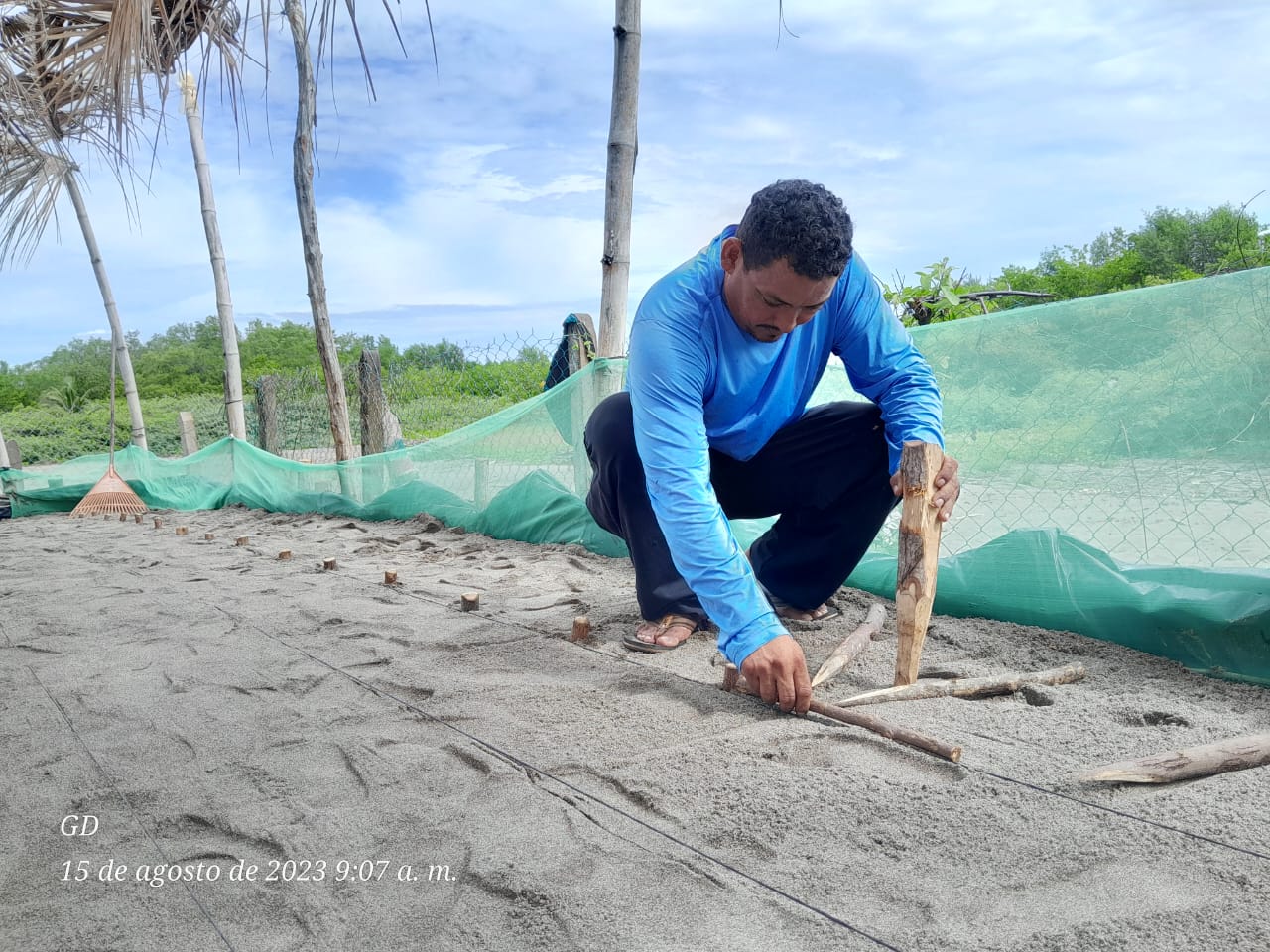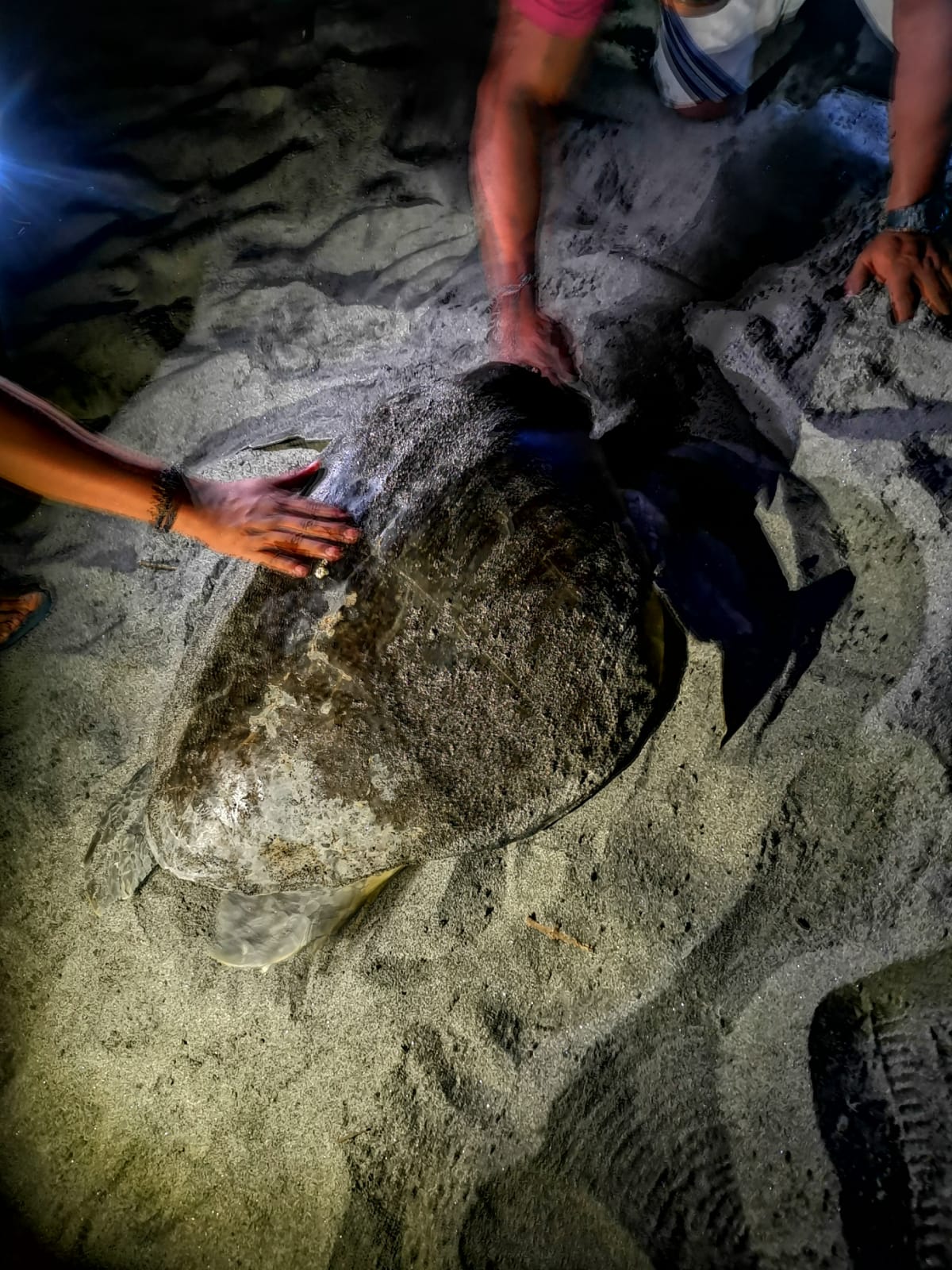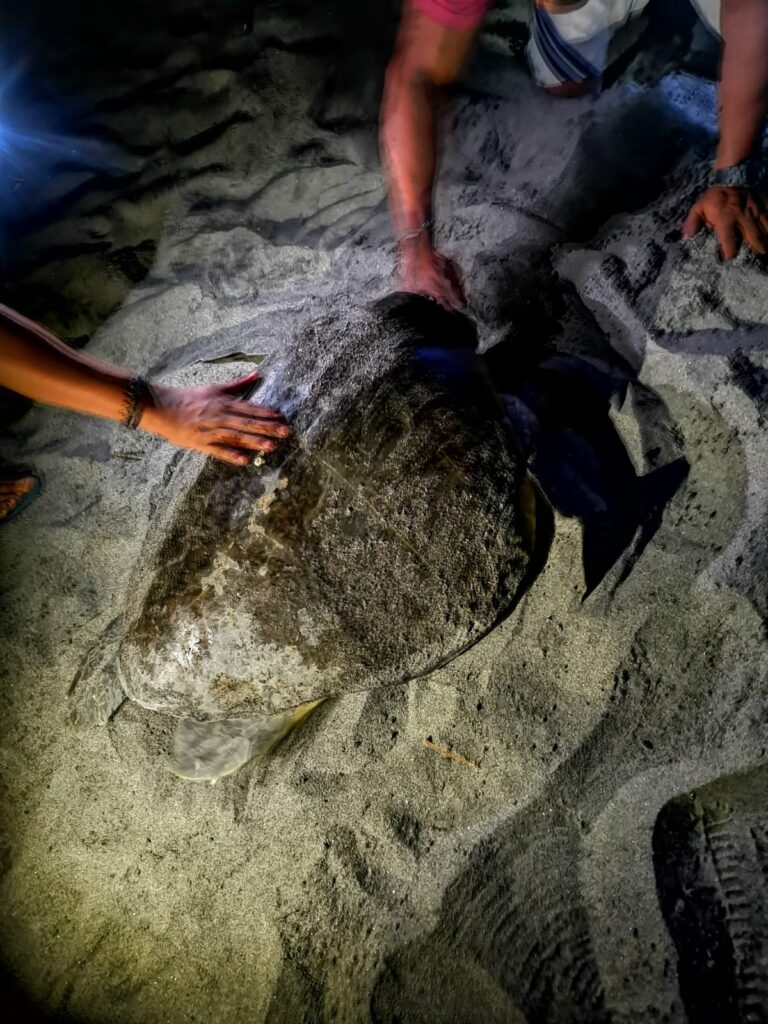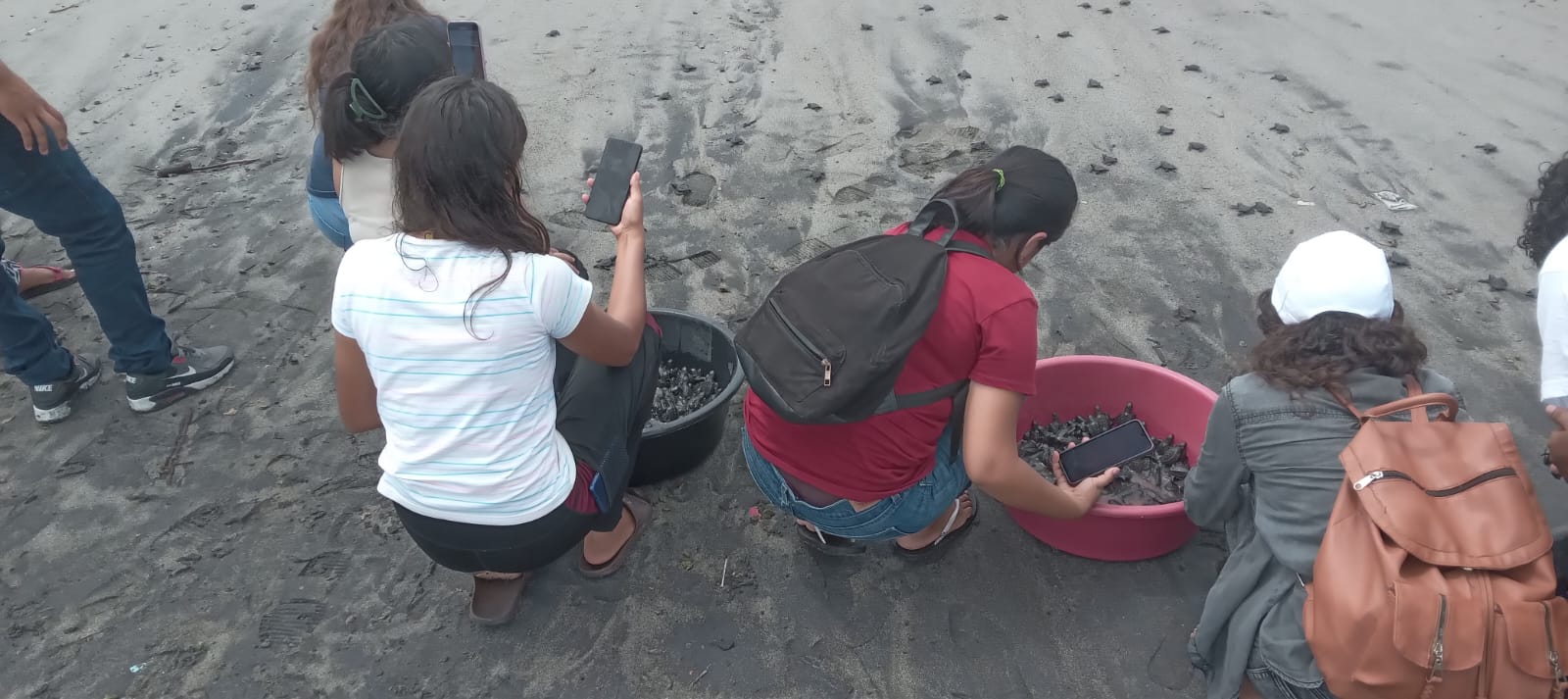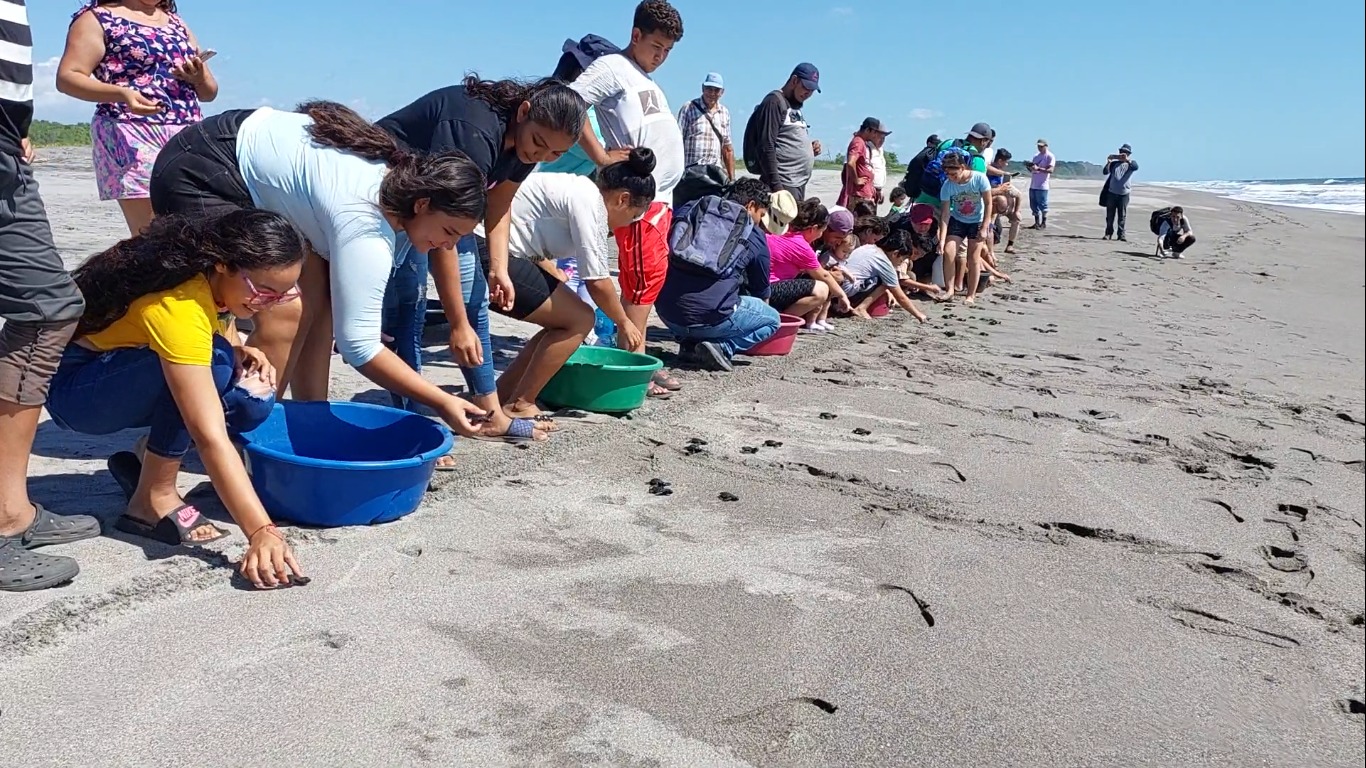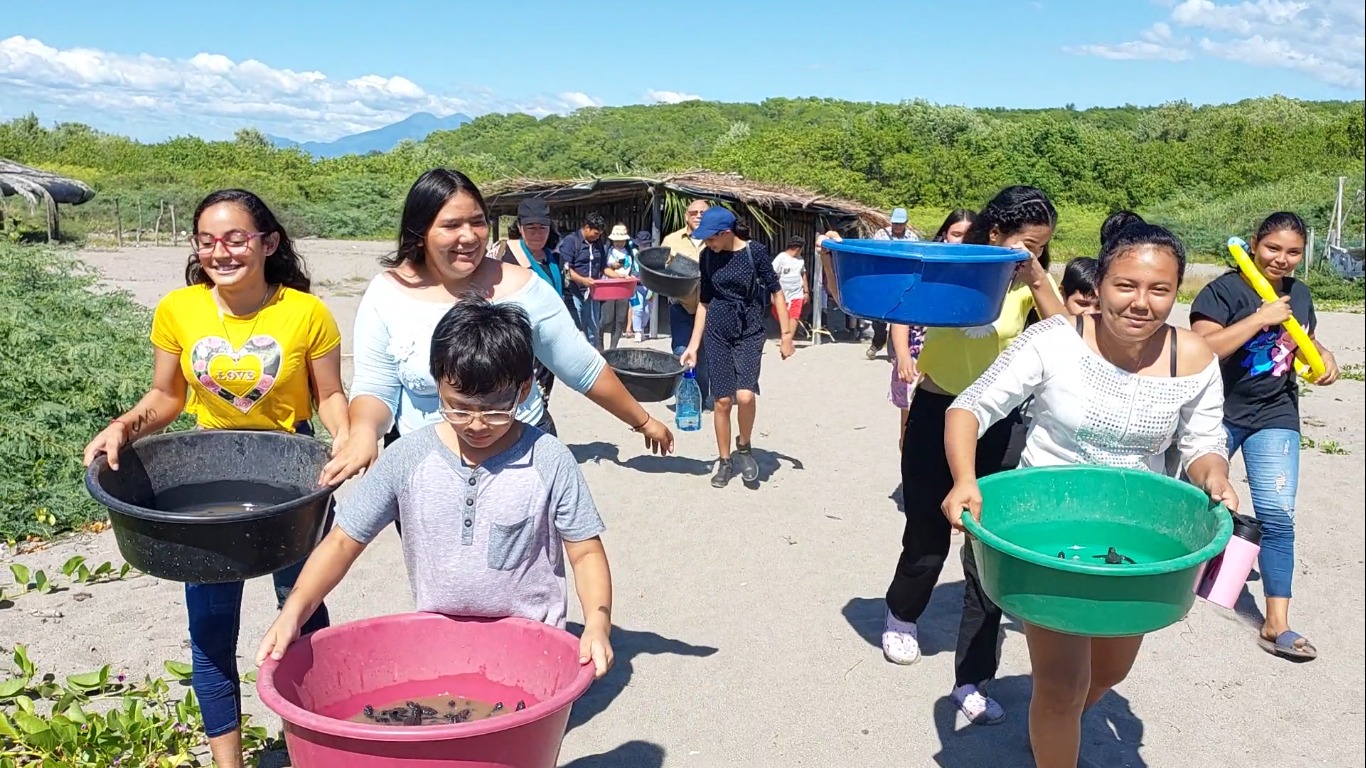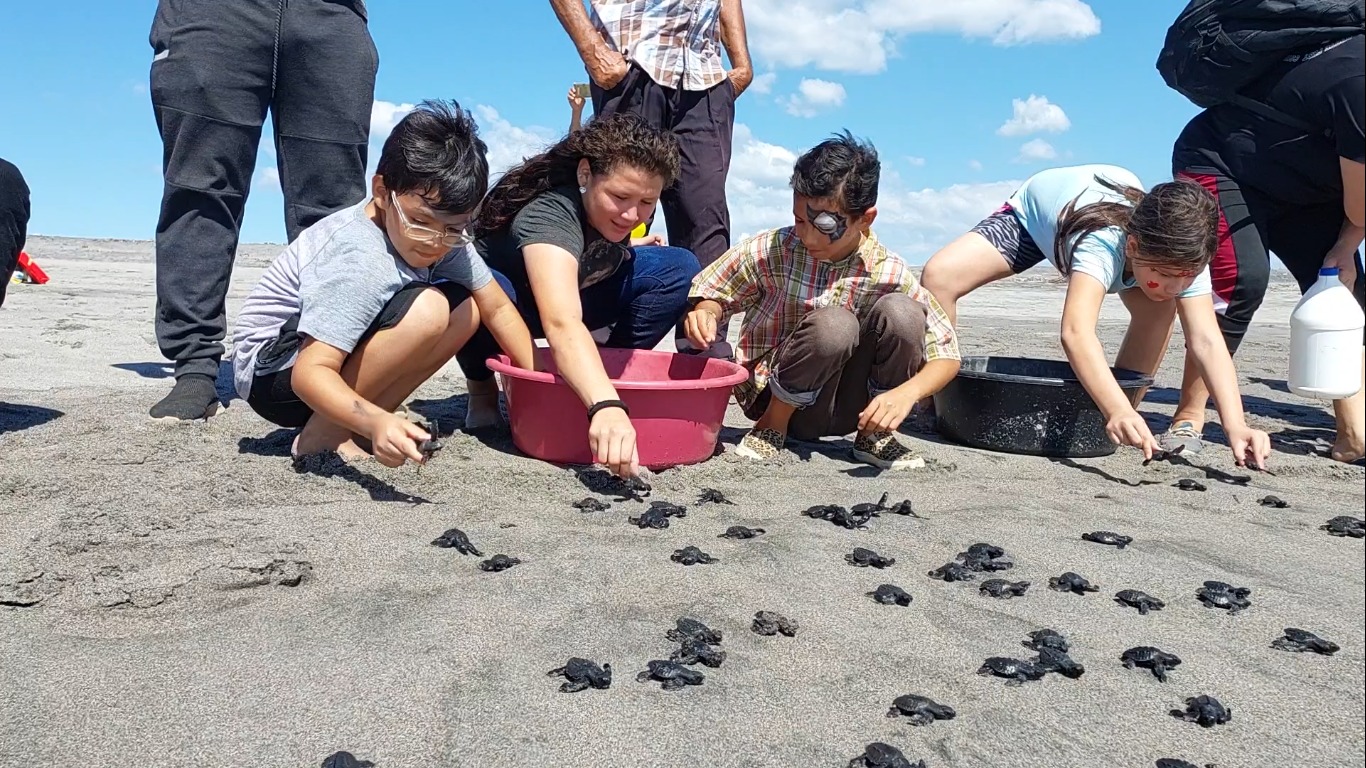The beaches of Montecristo Island are one of the main sea turtle nesting sites in El Salvador. Four species, all of them endangered, nest here: olive ridley, hawksbill, green, and leatherback. Turtle populations are threatened by loss of habitat, fishing methods that catch them inadvertently, marine debris, and climate change. Here, taking turtle eggs is illegal, but poaching is still a problem. Natural predators such as snakes and crabs, as well as domestic animals, also prey on the eggs.
In 2022, Seacology funded construction of a turtle egg hatchery, an awareness campaign, and livelihood support. The project was a big success; 148,926 sea turtle eggs hatched at the facility, and 145,890 hatchlings were released. This significantly exceeded expectations. Our project partner, Asociación Mangle staff, and 20 turtle egg collectors (tortugueros) also took part in trainings to improve monitoring and conservation.
This project will continue those efforts by improving the monitoring shed and hatchery and providing trash cans and expanded beach cleanups. Sixty people will be trained to gather sea turtle eggs. About 85 percent are expected to hatch, but the rate could be higher, as it was in 2022. The numbers will be carefully tracked and provided to the Ministry of the Environment. The project will also continue to compensate egg collectors with training on how to build and repair boats, and with artisanal fishing gear. Our partner will also teach people how to earn money by making t-shirts and crafts.
At least 100 kids from the community will take part in four days of sea turtle conservation activities, including games and artwork. In October, the community will hold a sea turtle festival with youth art and turtle knowledge contests, games, and release of hatchlings on the beach. Local FM Radio Mangle will produce and publicize the festival.


